Do you think that your Quail eggs come from Quail that have had a happy life? The shocking truth is that most of them are factory farmed in atrocious conditions.
The vast majority of Quail are farmed intensively in barren battery cages or overcrowded barns. The European Union produces over 100 million Quail, but the industry is largely unregulated and there are no official published statistics on this. It blows our mind that this is still an unregulated industry!
Quail is positioned and marketed as a “luxury” high end product that is a delicacy. Yet Quail are farmed intensively in battery cages and overcrowded barns. The Quail industry creates suffering on an enormous scale when there is a better way. Read on to let us tell you all about the magnificent Quail.
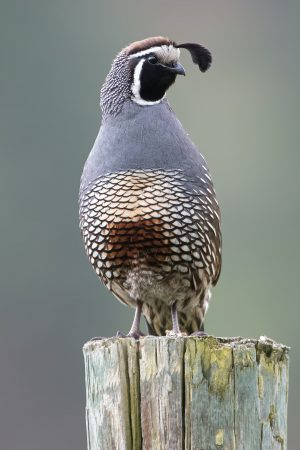
The most commonly farmed species of Quail is the Japanese Quail (Coturnix japonica). They were domesticated around the 11th century in Japan, and originally kept as song birds.
In the 1950s, they were brought to Europe and are now bred for their meat and eggs. Quail are the smallest farmed bird, some weighing as little as 100g when fully grown.
Quail can be found living in grassy fields, corpland and meadow habitats. Wild Japanese Quail live in East Asia, Russia and parts of Africa and some populations migrate.
They feed mainly on grass seeds but also eat small insects. Quail live on the ground foraging, nesting and sleeping in the grass. They dust- bathe a lot to keep their feathers clean!
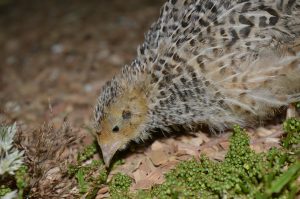
When Quails sense danger they quickly fly up to avoid their predator but drop back into the grass a few dozen yards away.
Their first reaction to danger if possible though is to hide in vegetation. They are very elusive and you are more likely to hear them than to see them. It is amazing to hear their very distinctive calls!
The majority of Quail are farmed for meat production and they spend their entire lives on an overcrowded factory farm floor or in terribly cramped cages. Many have as little space as a beer mat.
It gets worse, 400,000 Quail are kept for laying eggs in the EU. 90% of them spend their entire lives in tiny cages where there is no space to move or express their natural behaviours.
Like humans both male and female adults share the responsibilities of parenthood which can’t happen in the cages. They also like to make shallow scrapes to serve as nests together. Interestingly they only use each nest for one brood and they never return.
I have a real fascination with this tiny bird and one of my all time favourite memories is watching a clutch of Quail with some babies - maybe only 10 days old walk past and fly up into the tree to roost. Or so I thought - they must have plopped down in a piece of grass I couldn't see. I was foiled by them!
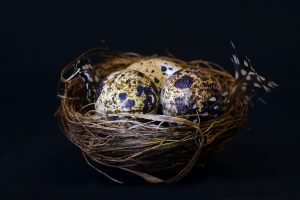
So to think of Quails confined in tiny cages of bare wire which causes them distress and in turn injuries really makes me feel enraged. When workers enter the barns the Quail leap in fear and hit their hands on the roof of the cages. They also injure their feet on the wire mesh floors and lose a lot of feathers due to distress. It can’t be a nice environment for workers or the Quails. We are all animals at the end of the day.
These exquisitely beautiful birds should have a space to dust bathe and a place to hide to feel safe. They are natural forages and they love to look under hedgerows for insects. Something that is robbed of them when they are kept in cages inside.
Quail are the smallest animal to be factory farmed and shockingly they are the third most caged farm animal in Europe. A barren battery cage ban was introduced through the EU to protect the welfare of laying hens but it wasn’t extended to include the beautiful egg laying Quail.
Higher welfare systems for farming Quail do exist. Birds are kept in naturally lit barns with more space to roam and dust bathe and straw bales to hide and peck in.
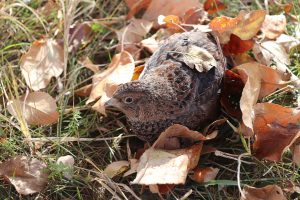
This means trauma to the birds head and neck which can be a potential fatale is removed. Disturbance to resting birds also results in chronic stress and impacts the taste of the meat.
Higher welfare systems for farming Quail exist - at a basic level they can be kept in naturally lit barns with more space to roam and dust bathe with straw bales to hide in and peck in.
There is an even better way that can be profitable and productive - it can be conducted in a welfare - friendly environment. Several British farms have set up free- range alternatives to barn or battery cage systems. They house their Quail outdoors in large netted enclosures where they have access to nesting areas, foraging areas, dust baths and piles or brush for cover.
While domestication has seen farmed Japanese Quail lose their migratory urge to flight it is probably still more important to these birds than it is to the domestic chicken. Flight is a secondary defence response - like all game birds if running for cover doesn’t work then you launch yourself into the air.
While “Free- to Fly” barns sound like a perfect idea, the numbers of birds kept in such systems may result in injury to the flying bids when it lands due to the volume of birds in the barn. Providing cover so the birds can hide is a way to reduce flight in Quail (Buchwalder and Wechsler, 1997) Farmers can increase the energy that their birds put into weight gain or egg production (instead of fear - based behaviours) by allowing the birds places to hide! Hide and seek anyone?
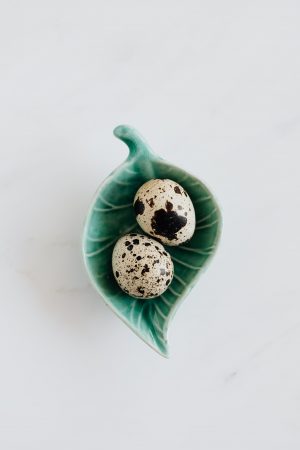
It wouldn’t be fair to think it is an easy route to change the industry to large netted enclosures as there are still trials farmers will have to face. An example of this is that Quail won’t put themselves to bed in the same way that hens will, so the free-range farmer will need to check that everyone is tucked-up safe for the night.
Carol McKenna, Compassion’s Director of Campaigns, says:
“Quail are seen as a delicacy when in fact the reality couldn’t be further from the truth. Sold for a premium price in supermarkets and top restaurants in the UK, Portugal, Spain, and Germany, the vast majority of Quail are reared in horrendous conditions.
“It is unacceptable that the EU has banned the keeping of hens in barren battery cages while still permitting quail to be kept in similar cages. The farming of Quail in cages is cruel and must be phased out.
How you can help
Sign our petition to ask the Government to end Barren Battery Cages for Quails and ban imports from farmers who use them. Please share our petition on Facebook, Twitter and why not whatsapp your friends. Did you know that for every share over 100 people could see it. Imagine if we could all be the change and make this happen. Every petition has to start somewhere.
Buy them locally or from a supplier you know to ensure they are free to roam and fly. The shell will be thicker and they taste so much better. Too many companies get away with trying to make it look like they have greener credentials then they don’t.
We boiled Quails eggs served with celery salt and will be making Quail Scotch Eggs as a summer treat. So worth it!
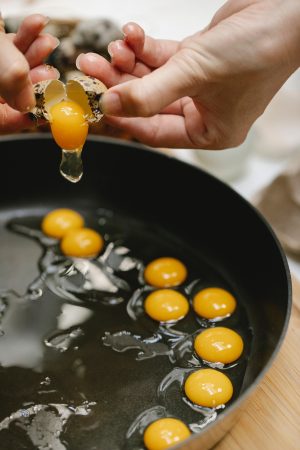
Let us know how you will share the petition in the comments below.
Enjoyed uncloaking the truth to Quail industry sign up to our mailing list here you won't know how you lived without it. Seasonal recipes, uncovering shocking myths and sharing a few suprises!
Want to read more first? Why not read our Co Founders blog dunbunking outrageous myths about sugar? Or find out the shocking truth about Supermarket honey by our in house sustainability expert Alicia. Or let yourself go on a Foraging Fairytale journey with our co - founder Imogen Tinkler and find out why out why young boys used to sting their loves with nettles.
Very interesting article
Thank you! It really blows our mind that it is still unregulated.
I just came across your article after reading a recipe in this week's New European magazine (16-22 Sept) which stated that UK quail is a sustainable meat source. I think a letter from you to that publication outlining the reality would be of great interest to its readership.
Thanks so much! I will email them with the reality. I really appreciate you taking the time to share this James.
Very enlightening - we’ve been looking at hens recently but not quail.
When will we stop seeing ourselves as the superior life form and start treating all life with care and respect??
Thanks for raising awareness